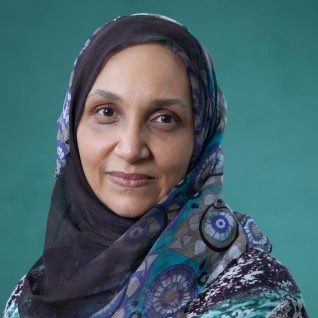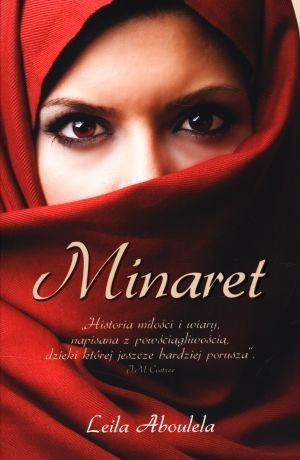
This interplay between modernity and tradition would also become my own challenge and a feature of my life and writing. In both my parents’ lives, modernity and tradition existed side by side–in my father’s case his liberal education and his loyalty to his family, in my mother’s case her devotion to Islam and her career in the UN. Leila Aboulela on autobiographical elements in Minaret: Written with directness and force, Minaret is a lyric and insightful novel about Islam and an alluring glimpse into a culture Westerners are only just beginning to understand. They find a common bond in faith and slowly, silently, begin to fall in love. Then Najwa meets Tamer, the intense, lonely younger brother of her employer. Soon orphaned, and with her twin brother sent to jail on a drug charge, she finds solace and companionship within the Muslim community. But a coup forces the young woman and her family into political exile in London. An upper-class Westernized Sudanese, her dreams were to marry well and raise a family. Twenty years ago, Najwa, then at university in Khartoum, would never have imagined that one day she would be a maid.


With her Muslim hijab and down-turned gaze, Najwa is invisible to most eyes, especially to the rich families whose houses she cleans in London. Her American debut is a provocative, timely, and engaging novel about a young Muslim woman–once privileged and secular in her native land and now impoverished in London–gradually embracing her orthodox faith. Her work has been long-listed for the IMPAC Dublin Literary Award and the Orange Prize, and she was the first winner of the Caine Prize for African Writing. It also fills the gap in discussing the works of two writers from different backgrounds and in different settings and contexts in one study.Leila Aboulela has published two books in England that have been highly praised. Nevertheless, the current study is predominantly different as it shows how Islam is represented in both Aboulela’s Minaret (2004) and Kahf’s The Girl in the Tangerine Scarf (2006) as a religion that provides an ethical pathway and empowers its adherents socially, politically and psychologically, thus lending purpose to one’s life. Secondly, most of the previous research tackles each writer alone.


General literary research has been conducted on these two writers and how they represent Islam in their writing however, firstly, most of the conducted literature is about the veil and what it adds to Muslim women living in the West. The study investigates how Islam is portrayed in the fiction of two diasporic Arab women writers, Leila Aboulela (b. Diasporic Arab writers substantially differ in how they represent aspects of contemporary Arabic culture(s) in their literary works and diasporic Arab women writers have represented Islam even more differently in their works.


 0 kommentar(er)
0 kommentar(er)
